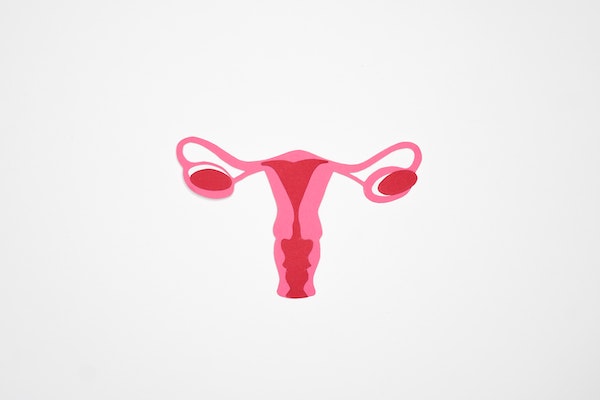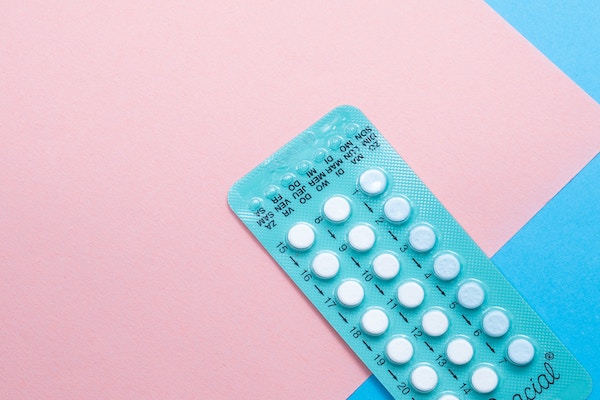PCOS Fast Facts with Dr. Erika

Polycystic Ovary Syndrome (PCOS) – is a term that may sound like a complex scientific phenomenon but is actually a fairly common condition that, in the US alone, affects about 5 to 6 million people assigned female at birth. PCOS is characterized by a range of symptoms, including irregular periods, ovarian cysts, hormonal imbalances, and sometimes difficulty conceiving. Understanding the intricate relationship between hormones and PCOS is crucial for both management and treatment of this condition. If you have symptoms or concerns about PCOS, continue reading below to uncover the fast facts, delve into the causes, and explore the intricate ways PCOS can affect periods, hormones, sex, and everything in between.
PCOS Fast Facts
- PCOS is a hormonal disorder that predominantly affects people with ovaries, affecting 7-10% of women of childbearing age.
- Symptoms can include irregular periods, infertility, and excess androgens (the so-called “male” hormones) contributing to acne, deepened voice, or facial hair growth.
- PCOS cysts are tiny, immature follicles that failed to fully develop into eggs. They can sometimes be, but are not always, seen on imaging such as ultrasounds of the pelvis.
- Inflammation’s Role: PCOS isn’t just about ovaries – inflammation plays a part, too. This can mess with insulin resistance and glucose levels and lead to a greater risk of type 2 diabetes.

What is PCOS?
PCOS is a condition that stems from hormonal imbalances, particularly involving insulin and androgens. The ovaries start producing more androgens than they should, which can disrupt the usual ovulation cycle. This can cause female-dominant hormones to shift to abnormal levels, an elevation of testosterone, and irregular glucose and insulin levels. It can also cause hirsutism (male-like features such as deep voice or excess facial hair growth) and even infertility.
Causes of PCOS
Scientists have been trying to uncover the mysteries behind PCOS for years. While the exact cause remains elusive, genetics, insulin resistance, and inflammation are some of the most probable causes of this condition. The exact cause of PCOS remains complex and multifactorial, with both genetic and environmental factors at play. Genetics seem to have a significant role, as PCOS often runs in families. However, environmental factors, such as diet, lifestyle, and exposure to endocrine-disrupting chemicals, can also contribute to the development of PCOS symptoms. The ratio of LH to FSH (two female-dominant hormones closely related to regulating ovulation and menstruation) significantly changes, and testosterone can also elevate, leading to a major disruption in your body. Another key factor in PCOS is insulin resistance, which leads to the overproduction of insulin. Excess insulin can stimulate the ovaries to produce more androgens, leading to the characteristic hormonal imbalances seen in PCOS. These hormonal imbalances can disrupt the normal process of egg maturation and release, resulting in the formation of ovarian cysts and irregular menstrual cycles.
Hormonal imbalance can cause women to ovulate less frequently or even not at all, leading to problems with fertility. Additionally, as hormone levels and ovulation can be sporadic and difficult to predict, periods can be very irregular, heavy, prolonged, infrequent, or even absent. This can happen because follicles often develop but don’t mature, forming cysts on ovaries. Also, elevated levels of androgens can hinder regular ovulation. Estrogen-progesterone balance is affected, causing endometrial (uterine lining) overgrowth and unpredictable shedding, contributing to irregular bleeding. PCOS-related insulin resistance can also impact hormone regulation. These combined factors result in symptoms like oligomenorrhea (infrequent periods) or amenorrhea (absent periods), highlighting the intricate connection between hormones, ovulation, and the menstrual cycle in people with PCOS.
PCOS’s Relationship with Hormones
Hormones play a pivotal role in the development and regulation of PCOS, where the hormonal balance in a woman’s body is often drastically interrupted. An imbalance in LH and FSH hormones (luteinizing and follicular stimulating hormones) can lead to irregular ovulation and the development of cysts on the ovaries. Androgens (commonly referred to as “male-dominated” hormones but present in all genders) are in the limelight, causing excess hair growth, acne, and sometimes a bit of hair loss. In PCOS, higher levels of androgens like testosterone can disrupt the normal functioning of the ovaries and cause irregular ovulation. Estrogen and progesterone, hormones that are usually more prevalent in a female body, are often lower than normal levels and can contribute to many of the signs and symptoms listed above. Insulin and glucose in your body can be affected, predominately seen as insulin resistance, where a woman can become pre-diabetic or diabetic because of PCOS. This is because the body’s ability to process insulin is often impaired in people with PCOS.
PCOS and Painful Intercourse
Painful sex, also known as “dyspareunia,” can make the bedroom feel more like a battleground. Hormonal imbalances can affect vaginal lubrication and tissue elasticity. Reduced estrogen levels can cause vaginal dryness and thinning, making intercourse uncomfortable. Furthermore, inflammation and even psychological factors can turn what should be a pleasurable experience into something unpleasant, and unfortunately, many women with PCOS report uncomfortable sex. In addition to foreplay to help with natural lubrication and relaxation, lubrication can be very effective at decreasing the discomfort some women may experience. Learn more about lube and find the right product for you here.

PCOS and Libido
Both physiological and psychological factors can lead to changes in sex drive. Hormonal imbalances, body image issues, and the psychological toll of PCOS can all play a part in reducing a woman’s sex drive. Interestingly, one study found that almost 60% of women diagnosed with PCOS reported what they described as sexual dysfunction.
PCOS and Fertility
Since hormones change and ovulation can fluctuate or even stop, PCOS can cause and is one of the most common reasons for infertility. Ovulation-inducing medications are often prescribed to stimulate regular ovulation and increase the chances of pregnancy. In more severe cases, assisted reproductive technologies such as in vitro fertilization (IVF) may be necessary. For additional information about PCOS and fertility, click here to read more.
Diagnosing PCOS
Diagnosing PCOS isn’t done by one method alone. Doctors consider factors like irregular periods, excess androgens, and ovarian cysts to make a diagnosis. Symptoms alone can be very stereotypical and path-pneumonic of PCOS, where additional testing is not required right away. However, for more confirmatory testing, things like blood tests to measure hormone ratios (luteinizing hormone and follicular stimulating hormone) and testosterone levels can be done. Also, measuring glucose and insulin levels can be helpful to see if additional conditions are present, as insulin resistance is often seen in women with PCOS. Additionally, imaging tests such as pelvic ultrasounds can check for ovarian cysts, though cysts can be from a variety of causes, so this, alone, is not advised.
Treatment Options
Lifestyle changes, including diet and exercise, can help manage symptoms by improving insulin sensitivity, focusing on weight management, and assisting with hormone regulation. A low glycemic index diet that emphasizes complex carbohydrates, lean proteins, and healthy fats can help regulate blood sugar levels and insulin resistance. Avoiding sugary and processed foods can be quite helpful. Regular physical activity enhances insulin sensitivity and helps with weight management, so engaging in aerobic and strength training exercises can be beneficial. Maintaining a healthy weight can additionally help improve hormonal imbalances, and even modest weight loss can lead to significant improvements in PCOS symptoms. In some cases, supplements such as inositol, vitamin D, and omega-3 fatty acids may be recommended to support hormonal balance. Also, chronic stress can exacerbate hormonal imbalances. Practices like meditation, yoga, and mindfulness can help reduce stress and improve hormonal regulation.
Hormonal birth control can assist in regulating periods and reducing androgen levels. For those aiming to start a family, fertility treatments, such as certain medications and even procedures, can be utilized. Medications to help with symptoms of PCOS are also available, such as a medication to help with facial hair growth and acne (spironolactone) and a medication to help with insulin resistance (metformin).

How Birth Control Works for PCOS
Regulating Menstrual Cycles: Hormone supplementation will contain synthetic versions of the hormones estrogen and progestin, either both or progestin alone, which help regulate the menstrual cycle and induce a predictable monthly period. Progestin-only pills and intrauterine devices (IUDs) do not usually affect androgens but can help regulate menses.
Hormonal Balance: Hormonal contraception options can reduce the levels of androgens in the body, which can help decrease acne, excess hair growth, and hair thinning.
Ovarian Cyst Management: While birth control pills don’t directly eliminate existing ovarian cysts, they can help prevent new cysts from forming. Birth control pills inhibit the release of follicle-stimulating hormone (FSH) and luteinizing hormone (LH), which are involved in the development of ovarian cysts.
Endometrial Health: PCOS can increase the risk of abnormal thickening of the uterine lining (endometrial hyperplasia) due to irregular menstrual cycles. Birth control pills help maintain a regular shedding of the uterine lining, reducing the risk of endometrial complications.
Acne and Hirsutism: Birth control pills with anti-androgenic properties can specifically target acne and hirsutism. These pills block the effects of androgens on the skin and hair follicles, leading to improvements in these conditions. It’s important to note that birth control is not a one-size-fits-all solution. While birth control can provide relief for many PCOS symptoms, it might not be suitable for everyone. Factors to consider include:
Health History: Individuals with certain health conditions, such as a history of blood clots, should discuss the safety of hormonal birth control with their healthcare provider.
Side Effects: Birth control pills can have side effects, such as nausea, breast tenderness, and mood changes. It’s important to discuss potential side effects with your healthcare provider.
In conclusion, PCOS might be painful, unpredictable, and occasionally disruptive. Still, it’s a fairly common condition that can be improved for many women with their physician’s assistance. The important takeaway message is that PCOS is not something to be afraid of or intimated by, and with the correct information and help from your doctor, you can navigate the complexity of PCOS to make it easier to manage and hopefully live your best, most enjoyable life.
Sources:
https://www.endocrine.org/patient-engagement/endocrine-library/pcos
https://www.womenshealthmag.com/health/a19998507/pcos-affects-your-sex-life/
https://www.womenshealth.gov/a-z-topics/polycystic-ovary-syndrome
https://www.ncbi.nlm.nih.gov/pmc/articles/PMC4642490/

